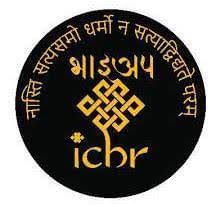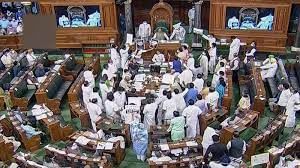UPSC Daily Current Affairs- 25th February 2023 | Current Affairs & Hindu Analysis: Daily, Weekly & Monthly PDF Download
GS-I
THE Indian Council of Historical Research (ICHR)
Why in News?
About THE INDIAN COUNCIL OF HISTORICAL RESEARCH (ICHR) :Recently, after objections, ICHR stopped singing the daily national anthem, and removed the images of Bharat Mata and Deen Dayal Upadhyaya.
- The Indian Council of Historical Research (ICHR) is an autonomous organization under the Ministry of Education, Government of India.
- It was established by the Ministry of Education & Social Welfare, Govt. of India (now, Ministry of Education) in 1972.
- ICHR was registered under the Societies Registration Act (Act xxi of 1860), an Act for the registration of Literary, Scientific and Charitable Societies in India.
- The primary aim and objective of the Indian Council of Historical Research are to promote and give directions to historical research and to encourage and foster objective and scientific writing of history.
- Some of the objectives of the Council:
- To foster objective and scientific writing of history such as to inculcate an informed appreciation of the country’s national and cultural heritage;
- To review the progress of historical research from time to time.
- To advise the Government of India on all such matters pertaining to historical research and training in history methodology as may be referred to it from time to time.
- To sponsor historical research programmes.
- To provide technical assistance for the formulation of historical research programmes by individuals or institutions.
- To promote publications of historical research of a high standard
- Generally, take all such measures as may be found necessary from time to time to promote historical research and its utilization in the country.
- To provide fellowships and financial assistance to young teachers in colleges, universities and registered research organizations,
- To publish a biannual Journal – the Indian Historical Review, and another journal Itihas in Hindi.
- To maintain a large and expanding Library-cum-Documentation Centre with facilities of DELNET and J-STOR.
- To maintain two regional centres namely ICHR North-East Regional Centre (Guwahati) and ICHR Southern Regional Centre (Bangalore)
Source: Indian Express
Eastern River Canal Project
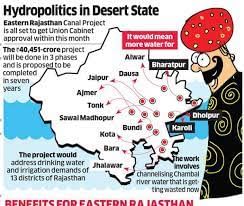
Why in News?
About Eastern River Canal Project:Recently, the Madhya Pradesh state government approached the supreme court seeking a stay on an Eastern River Canal Project execution.
- This canal project aims to harvest surplus water available during the rainy season in rivers in Southern Rajasthan such as Chambal and its tributaries, including Kunnu, Parvati, and Kalisindh, and use this water in south-eastern districts of the state, where water is scarce for drinking and irrigation.
- It proposes to provide drinking water to 13 districts of Rajasthan and provide irrigation water for 2.8 lakh hectares of land through 26 different large and medium projects.
- It is one of the tributaries of the Yamuna River and the most pollution-free river in India.
- It originates at the Singar Chouri peakon the northern slopes of the Vindhya mountains
- On its south, east and west, the basin is bounded by the Vindhyan mountain ranges and on the northwest by the Aravallis.
- The Hadauti plateau in Rajasthan occurs in the upper catchment of the Chambal River to the southeast of the Mewar Plains.
- Tributaries:Banas, Kali Sindh, Sipra, Parbati, etc.
- Major Dams on the River: Gandhi Sagar Dam, Rana Pratap Sagar Dam, Jawahar Sagar Dam.
- The National Chambal Sanctuary is situated along river Chambal on the tri-junction of Rajasthan, Madhya Pradesh and Uttar Pradesh.
Source: The Hindu
Kol Tribe
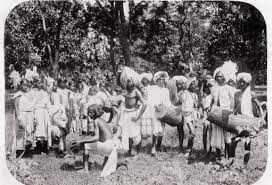
Why in News?
Recently, Union Home Minister addressed the 'Kol Janjati Mahakumbh' organized on the occasion of Shabri Mata Janm Jayanti at Satna, Madhya Pradesh.
About Kol Tribe:
- The Kol tribes belonged to the Proto-Australoid ethnic stratum.
- They consider themselves to be the descendants of Sahara Mata, a member of the Savaras of epic fame; she is known as the "mother of the Kol."
- They are concentrated in the northern districts of Madhya Pradeshand Small Kol populations are also found in Orissa and Maharashtra.
- The Kol speak local dialects of Hindi and use the Devanagari script for writing.
- They celebrate the Jawara festival which appears to be an ancient Kol agricultural festival that later acquired some Hindu characteristics.
- The name is derived from the juari plant, a type of millet. Jawara is held twice a year, in the fall just before the sowing of the winter crop, and in the spring after it has been harvested.
What is Kol Revolt/uprising?
- The Kols, tribal people from the Chhota Nagpur area, rose in revolt against the British in 1831.
- The rebel kols were under the leadership of Buddhu Bhagat, Joa Bhagat, Jhindrai Manki, Madara Mahato fought against British rules.
Source: PIB
GS-II
Genetic Information and Right to Privacy
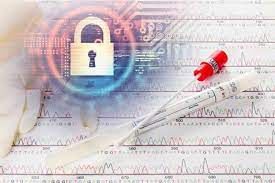
Why in News?
About Genetic Privacy:Recently, the Supreme Court (SC) has held in a judgment that children cannot be subjected to DNA tests in each and every case to establish proof of infidelity.
- It is a term that seeks to prevent a third party from using a person’s genetic data without his permission.
- A person’s genes are the blueprint of his or her physical or biological being, personal life and information about the future, present and history.
- Other information that can be abstracted: alcoholism, depression, aggressiveness, sexual orientation, mental productivity etc.
- When a person’s genetic data is used for testing, medical purposes, or other purposes, his privacy should be protected.
- Genetic data is made up of a person’s deoxyribonucleic acid (DNA) and chromosomes.
- DNA sample sources: hair, teeth, blood etc.
- Genetic information is personal and intimate.
- Thus, a child’s genetic information is part of his fundamental right to privacy.
- Children have the right to not have their legitimacy questioned before a court of law.
- DNA tests would harm the reputation and dignity of the mother.
- The children should not to be subjected to forensic/DNA testing during the divorce proceedings.
- Family courts should direct for a DNA test only in the situations where it is a last resort and in the interest of justice.
- In 2018, The Delhi High Court stated that discrimination in health insurance against people based on their genetic origin, in the absence of genetic test is unconstitutional.
- Genetic discrimination breaches Article 14, which guarantees equality before the law.
- In Justice KS Puttaswamy (Retd.) & Anr. v. Union of India, SC stated that the Right to Privacy is a fundamental Right under Article 21.
- In 2008, the United States had passed the Genetic Information Non-discrimination Act (GINA), to protects people from genetic discrimination in health care and jobs.
- Council of Europe has adopted the Guidelines on the use of genetic knowledge for insurance purposes.
- Under Canada’s Genetic Non-discrimination Act, it is illegal for insurers or employers to request DNA testing or findings.
- Genetic information may disclose information about a disease, illness, or a person’s health status.
- It can make a person more aware of his or her health.
- A person can learn about his ancestors and distant relatives.
- One’s data can be used in medical research.
- If a person learns about his illness early on, he would be able to take more preventative steps to treat it.
- Based on the profile available in the domain, genetic evidence can be fabricated in any crime scene through engineered DNA samples not taken from a real individual.
- Data such as person’s personal life, health, family members, and other private information when assessed by a third party can be misused.
- If such information is revealed, it can negatively impact individuals lives, such as discrimination from employers, insurance providers, the government, and others.
- It is a treaty adopted by the United Nations General Assembly in 1989.
- It recognises a child as every human being under 18 years old.
- It is an international agreement that is legally binding on the members.
- It sets out the civil, political, economic, social and cultural rights of every child, regardless of their race, religion or abilities.
- It includes rights such as Right to Education, Right to Rest and Leisure, Right to Protection from Mental or Physical Abuse including Rape and Sexual Exploitation.
- It has been ratified by all members of the UN except for the United States.
- It is the most widely ratified human rights treaty in the history of the world.
Thus with improvements in encryption, safe storage, and data transfer protocols, there may be potential to improve privacy protections technologically. From an ethical standpoint, it will be crucial to keep educating the public about the benefits and dangers of genetic testing and data sharing. It may entail activities to provide fair access to genetic testing and benefits as well as efforts to support transparency, openness, and accountability around the collection, use, and sharing of genetic data.
Source: The Hindu
Missing Deputy Speaker of Lok Sabha
Why in News?
Presiding officers of Lok Sabha:The 17th Lok Sabha has completed three years and seven months of its term; however, the House has not elected a Deputy Speaker.
- Speaker and Deputy Speaker: There are two presiding officers for the Lok Sabha, namely the Speaker and the Deputy Speaker, who are elected by the members of the House.
- Constitutional provisions: Under Article 93 of the Constitution, as soon as the House meets after the election these two presiding officers are elected one after the other.
- Article 178 contains the corresponding position for Speaker and Deputy Speaker of the Legislative Assembly of a state.
- Officers of Parliament: The Speaker and the Deputy Speaker are described in the Constitution as officers of Parliament, which signifies their importance in the parliamentary system.
Article 93 of Constitution of India:
- The House of the People shall, as soon as may be, choose two members of the House to be respective Speaker and Deputy Speaker thereof and, so often as the office of Speaker or Deputy Speaker becomes vacant, the House shall choose another member to be Speaker or Deputy Speaker, as the case may be.
Election: In the Lok Sabha, the lower House of the Indian Parliament, both Presiding Officers – the Speaker and the Deputy Speaker are elected from among its members by a simple majority of members present and voting in the House.
Independent from Speaker: The Deputy Speaker is independent of the Speaker, not subordinate to him, as both are elected from among the members of the House.
- When he presides over a sitting, he has all the powers of a Speaker.
Gaining importance: In addition to presiding over the House in the absence of the Speaker, the Deputy Speaker chaired committees both inside and outside of Parliament.
Ensures continuity of Speaker’s office:- The Deputy Speaker ensures the continuity of the Speakers office by acting as the Speaker when the office becomes vacant:
- Illness, or
- by death, or
- because of resignation or
- any other reason.
- When the Speaker’s post falls vacant, it is the Deputy Speaker who assumes all the powers of the Speaker and exercises both legislative powers and administrative powers.
Presiding officer in specific cases: When a resolution for removal of the Speaker is up for discussion, the Constitution specifies that the Deputy Speaker presides over the proceedings of the House.
- A Deputy Speaker is also the ex-officio chairman of some committees by virtue of his position.
- In the case of the Deputy Speaker of Lok Sabha, the position has varied over the years.
- Until the fourth Lok Sabha, the Congress held both the Speaker and Deputy Speakers positions.
- In the fifth Lok Sabha, whose term was extended due to the Emergency, an independent member, Shri G G Swell, was elected the Deputy Speaker.
- The tradition for the post of the Deputy Speaker going to the Opposition party started during the term of Prime Minister Morarji Desai’s government.
- The history of the office of Deputy Speaker goes back to the government of India Act of 1919 when he was called Deputy President as the Speaker was known as the president of the central legislative assembly.
- This tradition was continued after Independence, when a Deputy Speaker was elected to chair, besides the Speaker, the meetings of the Constituent Assembly (Legislative).
- The first Speaker was G V Mavlankar and the first Deputy Speaker was M Ananthasayanam Ayyangar who was elected by the Constituent Assembly (Legislative) on September 3, 1948.
- Later under the new Constitution, he was elected the first Deputy Speaker of the House of the people on May 28, 1952.
- Thereafter, every Lok Sabha had a Deputy Speaker who would be elected after a few days after the election of the Speaker.
- The Deputy Speaker has the same power as the Speaker when he presides over a sitting of the House.
- Similarly no appeal lies to the Speaker against a ruling given by the Deputy Speaker.
- So the Speaker is powerless in the matter of revising or overruling a decision of the Deputy Speaker.
- Under Article 95(1) of the Constitution, the Deputy Speaker gets all the powers of the Speaker when the office of the Speaker is vacant, so the Deputy Speaker can also determine the petitions relating to disqualification under the 10th Schedule of the Constitution.
- Although the Deputy Speaker gets to exercise these powers only in the absence of the Speaker his decisions are final and binding when he gives a ruling.
- In the eventuality of the Speaker remaining absent for a longer time due to illness or otherwise the government will have to grapple with the unpredictability of a ruling or an adverse decision by a Deputy Speaker who comes from the Opposition ranks.
- Unprecedented Move: It is quite unfortunate that the Deputy Speaker has not been appointed for more than two years now (for the first time in the history of independent India).
- Decreasing Discussion in recent times: Parliament is viewed as a temple of deliberation and discussion. But, in the recent Lok Sabha Monsoon session, there has been zero discussion on any policy issue.
- Falling productivity: In 2020-21, Lok Sabha functioned for 34 days while Rajya Sabha functioned for 33 days. It was the lowest ever in India.
- Winter session 2020 was not conducted completely. Even Budget Session 2021 was reduced by two weeks because of election campaigning.
- Hasty legislation: No bill was passed to the Parliamentary Committee. Every bill introduced in this Monsoon Session was passed within the same session.
- Surprisingly, 18 bills were passed in Lok Sabha with only one bill being discussed over 15 minutes.
- No specific timeline for Deputy Speaker’s appointment: Article 93 for Lok Sabha and Article 178 for state Assemblies state that these Houses “shall, as soon as may be”, choose two of its members to be Speaker and Deputy Speaker.
- The Constitution and the Assembly rules do not specify a time-frame for filling a vacancy in the post.
- Maintaining Neutrality: It would be unrealistic to expect a Presiding Officer to completely abjure all party considerations while functioning as there are structural issues regarding the manner of appointment of the Speaker and his/her tenure in office.
The office of the Deputy Speaker is as important as the office of the speaker. The constitution has created this office for the smooth functioning of the house. Therefore, in the present circumstances, the post of Deputy Speaker is desirable to maintain neutrality and smooth functioning of the Parliament.
Source: Indian Express
GS-III
Orangutan

Why in News?
About Orangutan:Recently, four police personnel from Red Hills including a sub-inspector were suspended after an inquiry report found that they had let off a group of men who had smuggled into the city two orangutans.
- These are exclusively arborealwhich means they live among the trees of tropical rainforests.
- According to the World Wide Fund for Nature (WWF), there are three species of orangutans: Bornean, Sumatran and Tapanuli.
- They feast on wild fruits like lychees, and figs, and slurp water from holes in trees.
- Orangutans can live up to 50 years, but they have a relatively low reproductive rate because females only give birth once every 5-10 years.
- Bornean and Sumatran orangutans differ a little in appearance and behaviour. While both have shaggy reddish fur, Sumatran orangutans have longer facial hair.
- Sumatran orangutans are reported to have closer social bonds than their Bornean cousins.
- Bornean orangutans are more likely to descend from the trees to move around on the ground.
- Conservation status
- IUCN: Critically Endangered
Source: Indian Express
Shipping Industry in India

Why in News?
Recently, Union Minister for Ports, Shipping and Waterways stressed upon reducing pollution intensity and evolve strategies to introduce renewable energy and green hydrogen in the shipping sector.
About Shipping Industry in India :
- According to the Ministry of Shipping, around 95% of India’s trading by volume and 70% by value is done through maritime transport.
- India has 12 major and 205 notified minor and intermediate ports.
- Mumbai Port is India’s largest port by size.
- Tamil Nadu has the highest number of major ports in India.
- Krishnapatnam Port, is the deepest port in India .
- India is the sixteenth-largest maritime country in the world with a coastline of about 7,517 kms.
- The Indian Government plays an important role in supporting the ports sector.
- It has allowed Foreign Direct Investment (FDI) of up to 100% under the automatic route for port and harbour construction and maintenance project
- India’s merchandise exports in FY22 were at US$ 417.8 billion, up 40% from the previous year.
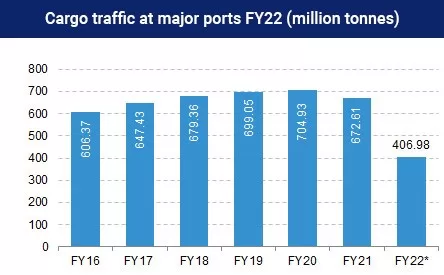
- Indian ports received cumulative FDI inflow worth US$ 1.63 billion between April 2000-June 2021.
- Jawaharlal Nehru Port Trust (JNPT) Special Economic Zone (SEZ) became the first of its kind operational port-based multi-product SEZ in India.
- APSEZ (Adani Ports and Special Economic Zone) plans to become the world’s largest private port company by 2030 and carbon neutral by 2025.
- India was ranked 44th in the Logistics Performance Index, a measure through which the World Bank ranks countries based on their logistics performance.
- Logistics Performance Index (LPI) :
- It is released by World Bank
- India ranked 44th on the LPI in 2018
The Sagarmala Programme –
- It is the flagship program of the Ministry of Shipping to promote port-led developmentin the country.
- It aims to modernize India’s Ports
Source: AIR
|
44 videos|5283 docs|1115 tests
|
FAQs on UPSC Daily Current Affairs- 25th February 2023 - Current Affairs & Hindu Analysis: Daily, Weekly & Monthly
| 1. What are the three stages of the UPSC exam? |  |
| 2. What does GS-I refer to in the UPSC exam? |  |
| 3. What topics are covered in GS-II of the UPSC exam? |  |
| 4. What does GS-III encompass in the UPSC exam? |  |
| 5. What is the importance of daily current affairs in UPSC exam preparation? |  |

